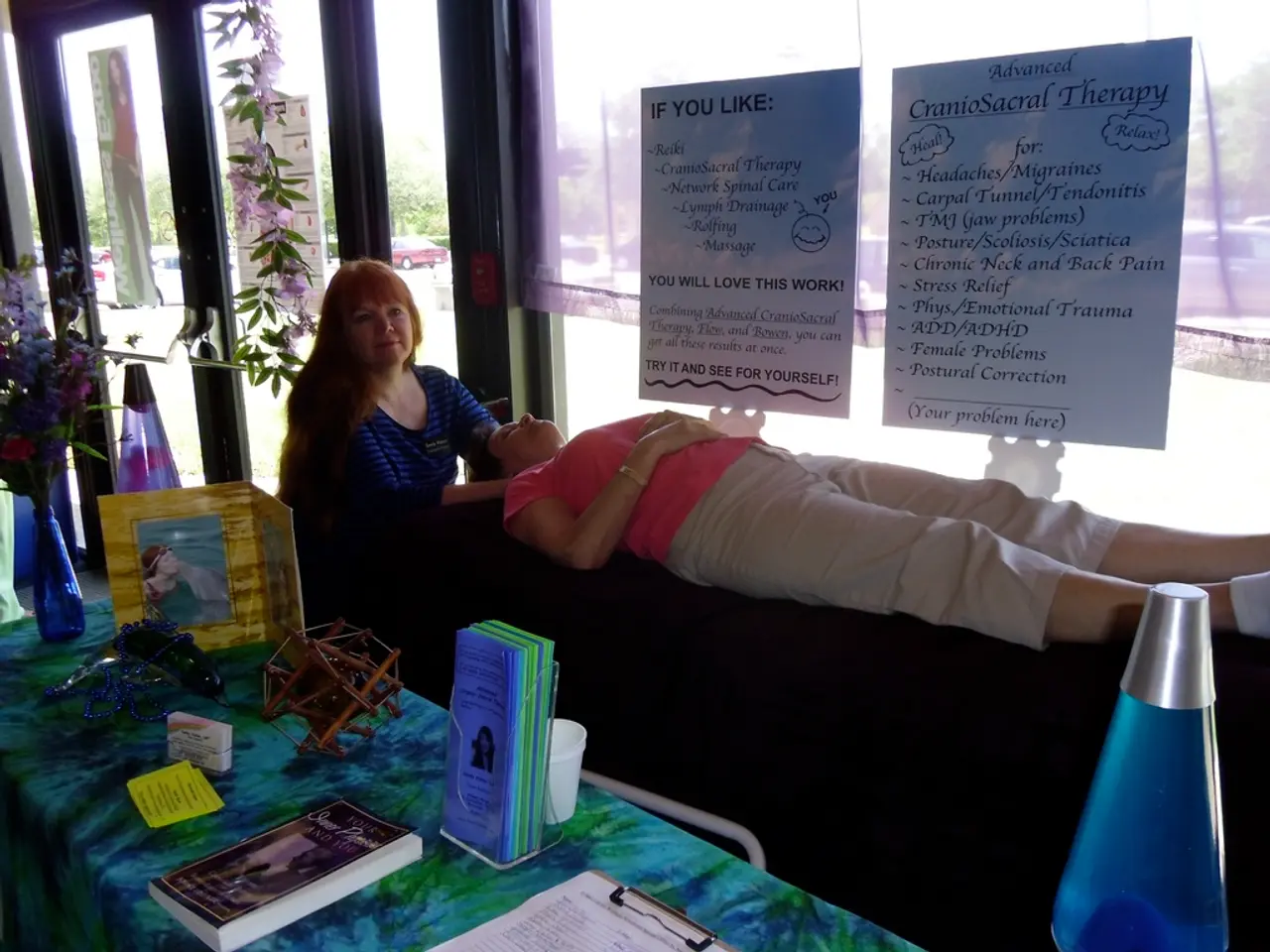Breaking free from a mother's detrimental influence: 5 transformative steps towards emotional liberty
In the pursuit of personal development and healthier future relationships, it's essential to recognize and distance oneself from toxic relationships. These harmful connections can take many forms, from emotional abuse and manipulation to financial control and isolation.
Signs of Toxic Relationships
Emotional abuse, such as constant criticism and humiliation, damages self-worth. Manipulation tactics like guilt-tripping, silent treatments, and dishonesty are also red flags. Gaslighting, causing self-doubt and confusion, is another sign of a toxic relationship. Power imbalances, controlling behaviours, and financial restrictions are tell-tale signs as well.
Extreme jealousy, possessiveness, and isolation from friends or family are warning signs, as is constant conflict with no resolution, emotional numbness, or unhappiness. Neglecting personal needs and goals is a sign of losing one's identity within a toxic relationship. Physical intimidation, violence, or sexual coercion are the most severe forms of toxicity.
Coping Strategies and Healing Steps
Healing from a toxic relationship is a process that requires self-reflection, patience, and often external support. The first step is to set healthy boundaries, learning to recognize and assert your limits, saying "no" when needed to protect emotional well-being and build self-respect.
Commit to self-care by prioritizing activities and habits that nurture your physical, emotional, and mental health. Grow self-compassion and self-love by practising kindness towards yourself, acknowledging your worth beyond the relationship's influence.
Address codependency by reflecting on patterns of unhealthy emotional reliance and fostering independence and identity outside the partner. Engage in therapy or support groups to provide a safe environment to explore emotions, understand relationship dynamics, and develop coping tools.
Resources for Personal Growth and Self-Love
Online therapy platforms connect individuals with licensed professionals who specialize in relationship trauma and self-esteem rebuilding. Books and workshops focused on boundaries, emotional intelligence, and recovery from abuse are also valuable resources. Community support groups for survivors of toxic relationships or narcissistic abuse offer a sense of camaraderie and shared understanding.
Moving Forward
Forgiveness is about releasing oneself from the burden of anger, resentment, and bitterness, but does not mean forgetting or condoning toxic behaviour. After leaving a toxic relationship, it's important to prioritize one's own growth and happiness by setting new goals, pursuing new interests, or rediscovering old passions.
Letting go of guilt and shame involves acknowledging that one is not responsible for someone else's toxic behaviour and forgiving oneself for any perceived mistakes. It's important to remember that forgiveness does not mean reconciling or continuing the relationship with the person who has hurt us.
By taking action towards one's own healing and growth, one can heal from toxic relationships and create a life filled with love, joy, and fulfillment. Recognizing and addressing toxic relationships is crucial for one's well-being and happiness, and involves setting boundaries, seeking therapy or counseling, practising self-care, and self-love.
- Recognizing manipulation tactics like guilt-tripping, dishonesty, and gaslighting, which damage self-worth and cause self-doubt, are signs of a toxic relationship needing to be addressed for personal development.
- Engaging in workshops focused on boundaries, emotional intelligence, and recovery from abuse, as well as online therapy platforms, can be valuable resources for individual growth and healing from toxic relationships.
- To move forward after leaving a toxic relationship, it is essential to forgive oneself for perceived mistakes, let go of guilt and shame, prioritize personal growth and happiness, and pursue new interests or rediscover old passions for a fulfilling lifestyle.




